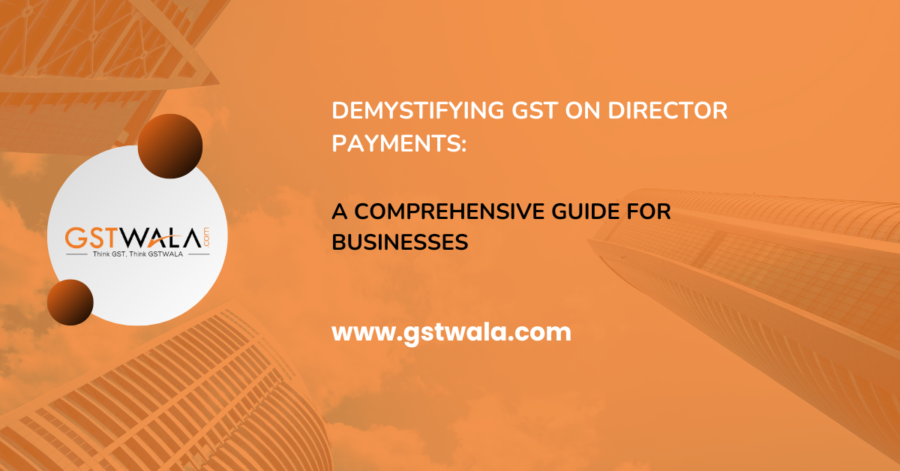
Demystifying GST on Director Payments: A Comprehensive Guide for Businesses
In the dynamic world of business, companies compensate directors in various ways. But how do these payments impact Goods and Services Tax (GST)? Understanding these nuances is crucial for businesses to ensure GST compliance. This blog serves as a one-stop guide for navigating GST implications on director payments. We’ll delve into the three main payment types, explore GST registration requirements, analyze the Reverse Charge Mechanism (RCM), and discuss recent regulatory clarifications.
Types of Director Payments and their GST Impact
- Salary: When a director receives payment as an employee, it’s categorized as salary and subject to Tax Deducted at Source (TDS) under Section 192. Good news! Salary payments are not considered a supply and therefore not subject to GST.
- Remuneration: Payments made as director’s remuneration, subject to TDS under Section 194J, fall under GST’s purview. Here’s where things get interesting. Notification 13/2017-Central Tax (Rate) states that director remuneration attracts GST under the Reverse Charge Mechanism (RCM). In simpler terms, the company receiving the service (i.e., the company itself) becomes liable to pay GST on the remuneration.
- Professional Fees: If a director offers professional services like legal or consulting advice, the payment is considered professional fees and attracts GST under RCM.
Compulsory GST Registration for Businesses
Under Section 24 of the CGST Act, if a company is liable to pay GST under RCM, it must register for GST. This applies even if the company’s turnover falls below the regular GST registration threshold.
Understanding the RCM Notification on Director Remuneration
Notification 13/2017-Central Tax (Rate) clearly states that remuneration paid to directors is subject to GST under RCM. This highlights the importance of GST registration for companies paying director remuneration, irrespective of their turnover.
GST Implications on Different Payment Types: A Recap
- Salary payments are exempt from GST.
- Director remuneration and professional fees attract GST under RCM.
Clarification on Payments for Professional Services
While the RCM notification implies that all services rendered by directors are subject to GST, it’s crucial to distinguish between services provided as a director and those offered in a professional capacity (e.g., legal advice).
Recent Developments: AAR Rulings and Departmental Circulars
Recent rulings by the Authority for Advance Rulings (AAR) and departmental circulars suggest that even payments classified as salary might be subject to GST under RCM. However, these rulings don’t set a binding precedent for all cases. Here are some key points to consider:
- Circular CBEC-20/10/05/2020 clarifies that remuneration declared separately and subject to TDS under Section 194J is taxable under GST.
- The applicability of GST on director payments can vary depending on individual circumstances, potentially leading to disputes and appeals.
Navigating GST on Director Payments
Effectively managing GST implications on director payments requires a clear understanding of different payment categories and their corresponding GST treatment. While recent judicial pronouncements and departmental circulars offer valuable insights, businesses must meticulously evaluate their unique circumstances to ensure GST compliance and minimize the risk of disputes. Staying vigilant, being proactive, and seeking expert advice when necessary can help businesses navigate the complexities of GST on director payments, fostering regulatory adherence and smooth operations.
Need Help?
For personalized GST solutions tailored to your specific business needs, reach out to our GST specialists at info@gstwala.com. We’re here to help you navigate the ever-evolving world of GST with confidence!
